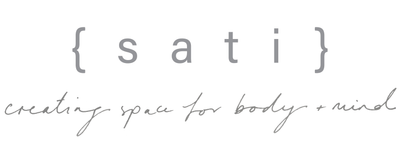As AI weaves itself into more and more corners of our lives, I've been wondering: what does this mean for our creativity, wellbeing and our ability to be fully present? Can meditation and mindfulness coexist with this wave of digital innovation or are they fundamentally at odds?
Recently, I attended a seminar where one of the country’s leading AI specialists took the stage. I expected to hear him encourage us to adopt AI quickly or risk being left behind but his message surprised (and, quite honestly, delighted) me.
Rather than urging us to race ahead and use AI as much as possible, he reminded us to move mindfully and to protect what makes our work and our lives deeply human. Whilst AI can be a helpful assistant it should never replace our creativity, curiosity or our connection to the mystery of life. It can handle repetitive tasks, free up some of our time and even offer fresh perspectives but it cannot match the nuanced beauty of human expression which is shaped by qualities like empathy, compassion and most importantly, the ability to imagine.
As human beings, we live in the liminal space between the physical world and the spiritual realm which is a potent arena for creativity and manifesting. This space is where ideas are born and inspiration flows in unexpected ways. These quiet, invisible threads - our ability to imagine, to create from the heart, to feel deeply and to connect with one another - are what make life rich. They are also fragile, and they need tending.
This is where meditation becomes more vital than ever. Mindfulness invites us back into the real world; the world of form, sensation and energy. If you’ve ever felt the difference between a Zoom call and sitting across from a friend in person, you’ve experienced the richness of human presence and thankfully this is something that the algorithms can't touch.
Self awareness is becoming a sort of super power in my opinion. Understanding what is happening in your own body and mind is essential to staying anchored and autonomous in this digital age and meditation is one of the most effective tools for cultivating this. To sit on your cushion, breathe and notice what’s present is more than just self-care; it’s a peaceful act of resistance against the pull of the artificial.
Our meditation cushions, crafted from 100% natural materials and dyed using plant-based methods, offer an extra layer of grounding as you turn inward. That physical grounding is a reminder: you are here, in your body, in this moment. It’s this connection to yourself, to the earth and to truth that will steady you amid the unpredictable landscape of this digital vortex.
It's not that AI is inherently "bad" - it opens a whole new dimension of knowledge that is vast and, if used correctly, can undoubtedly enhance our lives. But the consciousness of the user matters most and we must be cautious not to hand over all the things we love or let our creativity or 'human-ness' be diluted by the machine. A regular meditation practice helps us stay grounded and clear-minded, so we can engage with AI consciously and protect our innate human magic!
Here are some ways that meditation is helping me navigate this digital age:
- Concentration meditation (observing the breath - or anapana in Buddhist terminology) brings clarity and sharper discernment when faced with an overwhelming stream of information
- Meditation enhances my creativity by freeing up energy channels - stillness allows space for insights and inspiration to arise
- Practices like mettā (loving-kindness) help me cultivate compassion, deepening my connection to other people and other beings
- Having a greater awareness of what is happening in my mind and body makes me less vulnerable to targeted advertising and subtle manipulations that encourage unnecessary spending


Leave a comment